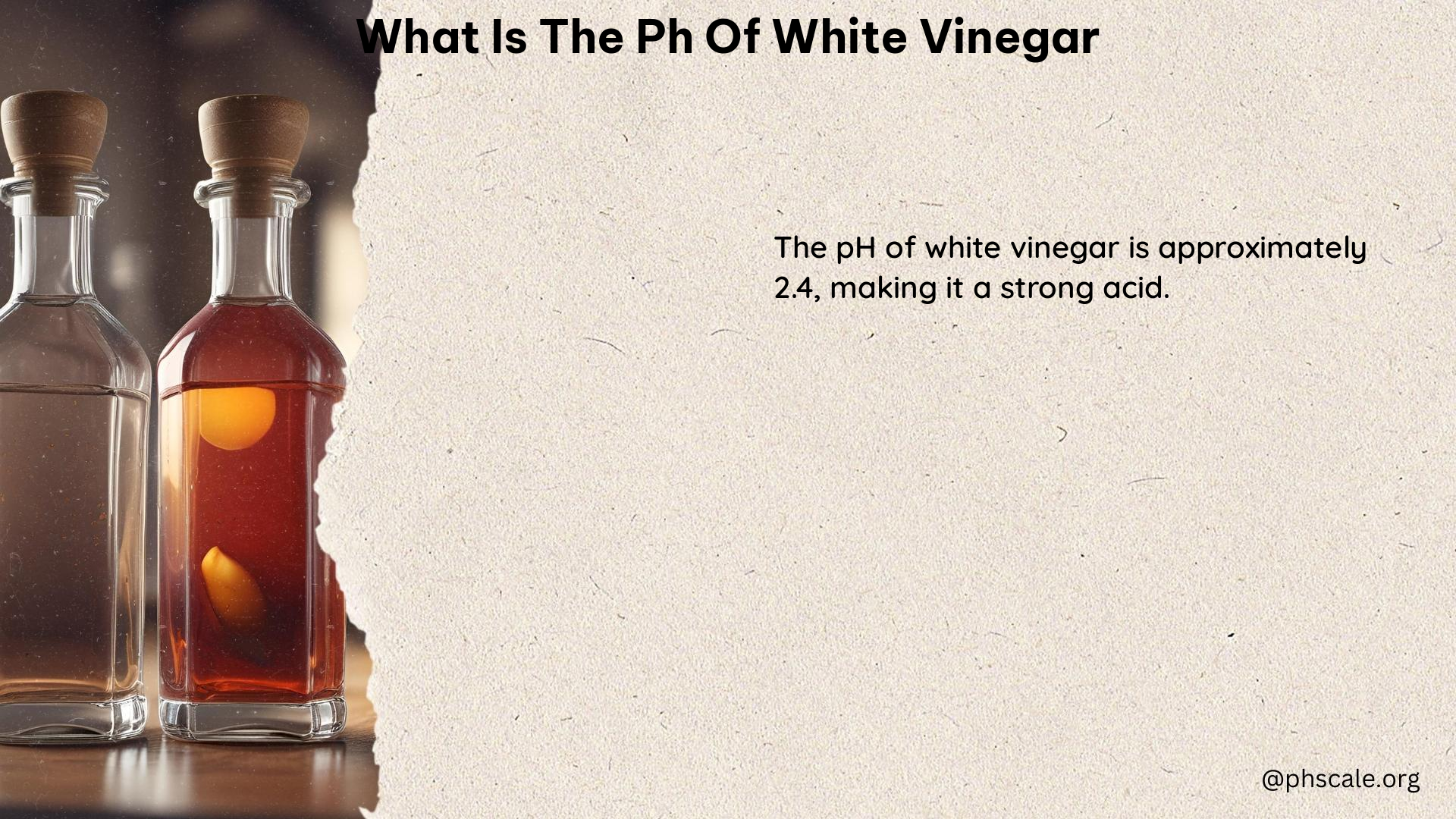The pH of white vinegar typically ranges from 2-3, making it an acidic substance. This acidity is due to the presence of acetic acid, which is a byproduct of the fermentation process used to produce vinegar. The pH level of white vinegar is lower than that of pure water, which has a neutral pH of 7.
Understanding the pH of White Vinegar
Vinegar is a versatile household item with a wide range of uses, from cooking and cleaning to DIY projects. The pH of white vinegar is an important factor to consider when using it for various applications.
What is pH?
pH, or potential of hydrogen, is a scale that measures the acidity or basicity of a substance. The scale ranges from 0 to 14, with 7 being neutral. Substances with a pH below 7 are considered acidic, while those with a pH above 7 are considered basic or alkaline.
The pH of White Vinegar
White vinegar, also known as distilled vinegar, is a clear, colorless liquid that is produced by the fermentation of ethanol. During this process, the ethanol is converted into acetic acid, which gives vinegar its characteristic sour taste and acidic properties.
The pH of white vinegar typically falls within the range of 2-3, making it a highly acidic substance. This low pH is due to the high concentration of acetic acid present in the vinegar.
Factors Affecting the pH of White Vinegar
The pH of white vinegar can be influenced by several factors, including:
- Concentration of Acetic Acid: The higher the concentration of acetic acid in the vinegar, the lower the pH will be.
- Dilution: Diluting white vinegar with water will increase the pH, making it less acidic.
- Impurities: Contaminants or impurities in the vinegar can affect its pH level.
Uses of White Vinegar Based on its pH

The acidic nature of white vinegar makes it a versatile and useful household item. Here are some common uses of white vinegar based on its pH:
Cleaning and Disinfecting
The low pH of white vinegar makes it an effective cleaning and disinfecting agent. It can be used to remove mineral deposits, grease, and other stubborn stains. When diluted with water, it can be used to clean surfaces such as countertops, floors, and windows.
Cooking and Food Preparation
White vinegar is commonly used in cooking and food preparation. Its acidity can be used to balance flavors, tenderize meats, and preserve foods. It is also a key ingredient in many marinades, dressings, and sauces.
Gardening and Landscaping
The acidic nature of white vinegar can be beneficial for certain plants and soil types. It can be used to lower the pH of soil, which can be helpful for growing plants that prefer acidic conditions.
Personal Care and Hygiene
White vinegar can be used for various personal care and hygiene purposes, such as treating skin conditions, hair care, and foot care. Its acidity can help to balance the pH of the skin and hair.
Considerations When Using White Vinegar
While white vinegar is a versatile and useful household item, it’s important to consider the following when using it:
- Dilution: As mentioned earlier, it’s important to dilute white vinegar with water before using it for cleaning or other applications to prevent damage to surfaces or materials.
- Skin and Eye Irritation: Undiluted white vinegar can be irritating to the skin and eyes. It’s important to use caution when handling and using it.
- Interactions with Other Chemicals: White vinegar should not be mixed with certain chemicals, such as bleach, as it can produce harmful fumes.
Conclusion
The pH of white vinegar is a crucial factor to consider when using it for various applications. With its acidic nature, ranging from 2-3 on the pH scale, white vinegar can be a powerful and versatile household item. By understanding the pH of white vinegar and how it can be used, you can effectively and safely incorporate it into your daily life.
References:
– https://www.healthline.com/nutrition/vinegar-acid-or-base
– https://www.youtube.com/watch?v=3DMK_ujLr7k
– https://sciencing.com/dilute-vinegar-affect-ph-value-8702588.html
– https://greengobbler.com/blog/what-is-the-ph-of-vinegar
– https://www.medicinenet.com/what_is_the_ph_level_of_vinegar_what_significance/article.htm
